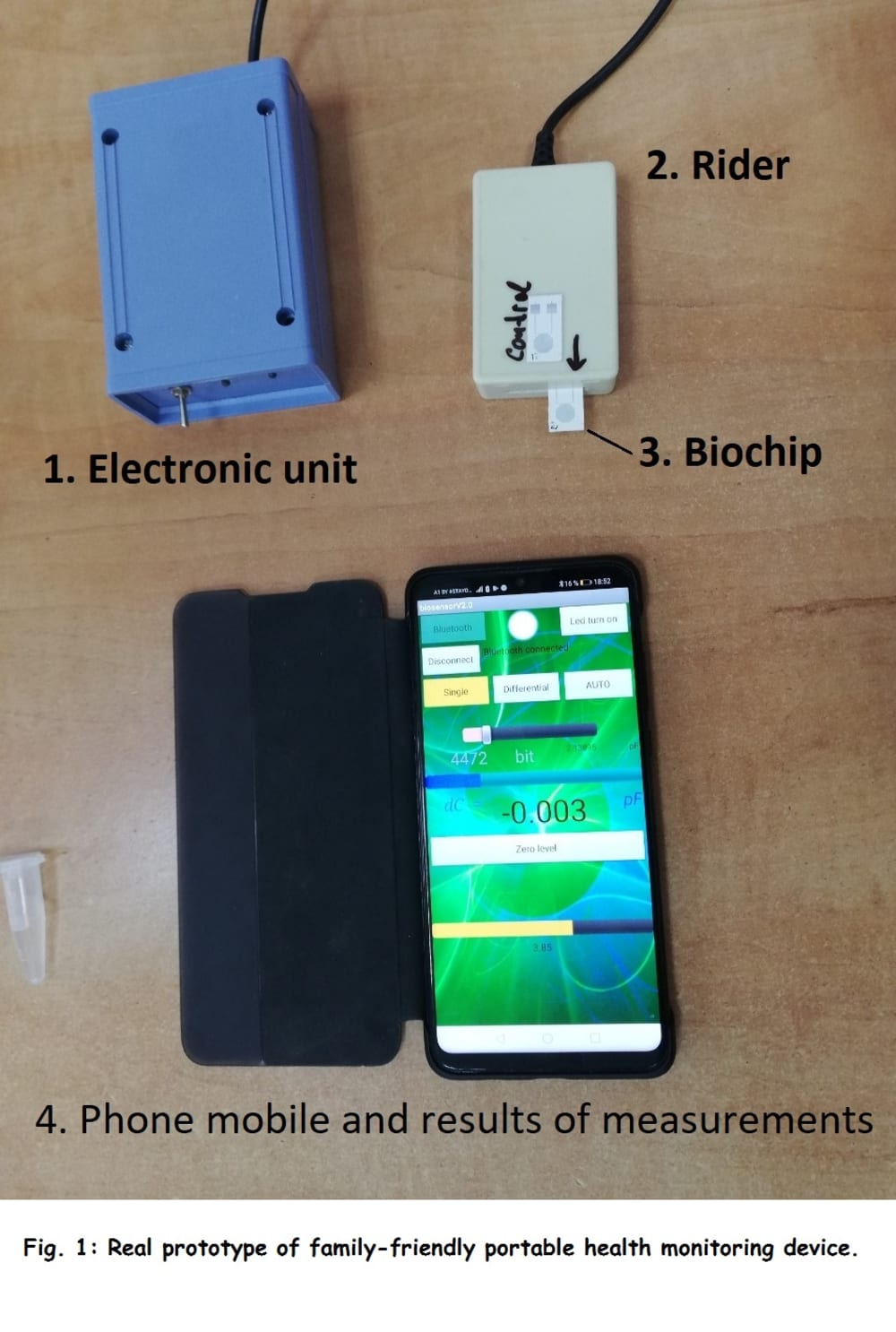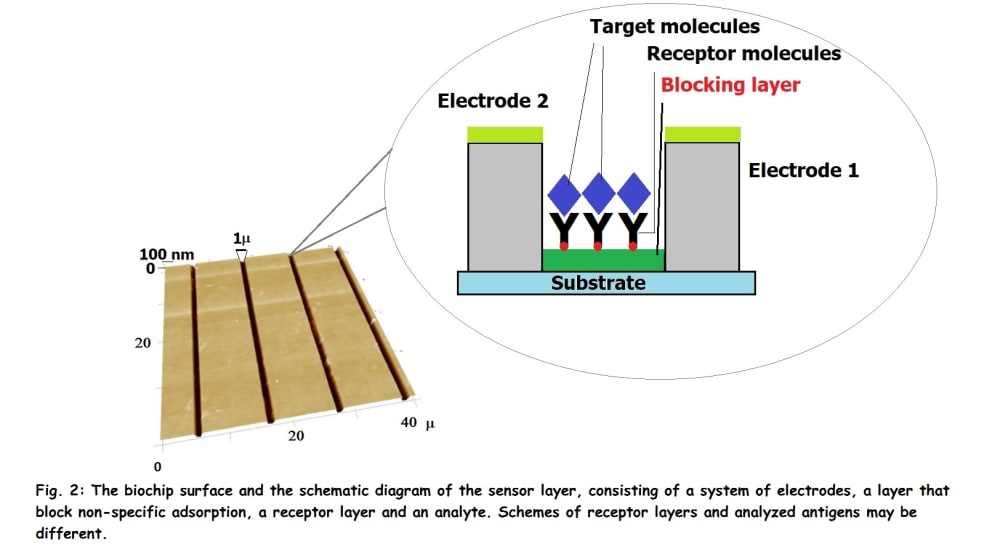Medical facilities are becoming a source of potential infection during the epidemy, as, for example, in the case of COVID-19. It is unlikely that the epidemiological situation with COVID-19 will be changed essentially in the world in the nearest years. Consequently, cardinal efforts and new methods of medical diagnostic should be undertaken to stop present and possible new epidemies. Mass testing of population only can prevent the spreading of the epidemy in the case of vaccine absence. We offer for consideration portable device to fix existing epidemy.
The proposed device is a portable biosensor that reads information from the biochip and transfers it from a sensor system to the user's mobile phone. The device is intended for personal use, for example, for members of the same family. It is planned to sell biochips that tuned for a certain type of disease. It is possible to sequentially identify several diseases, for example, a viral infection such as COVID-19 and a marker of the inflammatory process CRP (C-reactive protein). The mobile phone can then transfer the information that received from the biosensor to a medical institution, airport or to the organizers of any public events (football match, Olympic games, etc.).
Existing test-systems (test strips) are not highly sensitive and selective. Our device (Fig. 1) is based on the idea of blocking of non-specific adsorption of blood components onto the analyzed surface, with the exception of the analyzed component, for example, a virus or specific antibodies. The prototype of suggested device consists of (i) electronic unit, (ii) reader and (iii) biochip (Fig. 1). The last one is a system of interdigital electrodes (IDE), and its high capacity/sensitivity is achieved due to the small distance between the electrodes (about 1 micron in our case, see Figure 2). Selectivity is determined by oriented immobilization of receptor molecules on a specially developed sub-layer that prevents adsorption of any kind of biological material except detected virus, specific antibodies, etc. The device will be cheap enough (around USD 100) that any family can buy and use it. Biosensor chips ( ~10-15% of the device cost) are planned to be sold in any pharmacy. The market will offer a variety of biochips, tuned to the analysis of diseases that can constantly monitor health of members of each family.
The team consists of specialists in the field of protein engineering, which will synthesize receptor proteins to decrease of the material cost of the production), an electronics engineer, specialists in surface chemistry (making IDE and sensory surface activation), as well as specialists in the field of infectious diseases. Our competitors are the companies that produce biosensors. As a rule, diagnostic equipment is quite complex and expensive. Biosensor systems are used for diagnosis, usually in medical centers, hospitals. The key difference of the device we are developing is reflected in the name "family biosensor". This biosensor will represent portable device for home diagnostics. The competitive advantage of our type of biosensor is its mass use, which will ensure a high income.
Like this entry?
-
About the Entrant
- Name:Henadzi Zhavnerko
- Type of entry:teamTeam members:Dr. G.K.Zhavnerko, Dr. A.Syslov, Dr. V.Shiripov, Mr. V.Chikunov, Dr. I.Paribok, Dr. V.Kazachenko
- Patent status:none





